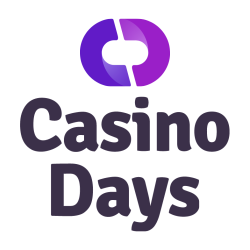Having gambling licenses for online casinos is a crucial requirement of India Gambling Laws to operate legally. Without one, no regulations or standards are in place to ensure the casino provides a secure, fair, and honest product. You can choose from myriad variations, including internationally recognized and locally established ones, to emphasize the significance of a valid gambling license.

100% Up To ₹1,00,000
₹1,00,000
A Lot of Games

Sports:₹10,000/Casino:₹30,000
₹10,000
Best Sports Betting

₹25,000 + 250 FS
₹25,000 + 250 FS
Best Sports Betting

₹15,000
₹15,000
Best Sports Betting

₹70,000
₹70,000
User`s Choice

₹500
₹500
A Lot of Games

₹25,000
₹25,000
Best Mobile Casino

Casino: 100% up to ₹10,000/Sports: 160% FDB up to INR 16,000
Best Sports Betting

Sports: 150% up to ₹20000/ Casino: 150% up to ₹105000
Best Sports Betting

₹20,000
₹20,000
Bitcoin Casino
An online casino license is a certification that permits an operator to provide their gaming product to players.
The casino must undergo a rigorous application process and pay a fee to obtain a license. During the process, they are scrutinized to ensure that they meet specific criteria, including:
These requirements ensure that players can trust licensed casinos to provide a safe, secure, and honest gaming experience.
| For a Casino | For a Player |
|---|---|
| Legitimacy: Holding a license means that the casino is operating legally, and players can trust that they are not playing on an illegal site. | Safety:A licensed casino guarantees the safety of player information, as they have to implement strict security measures to protect sensitive data. |
| Credibility: A license provides a level of credibility for the casino, as it demonstrates that the casino has met specific requirements to operate. This can attract more players, increasing the casino’s revenue. | Fairness: A licensed casino ensures that games are fair and random, as the regulatory authority will have tested the casino’s software to ensure that it meets the required standards. |
| Responsibility: A licensed casino is obligated to adhere to responsible gambling measures. This means the casino has to provide resources for players to gamble responsibly, such as setting deposit limits or self-exclusion options. | Complaints: If a player has a complaint against a licensed casino, they can take the issue up with the regulatory authority, which will investigate the matter. |
It’s important to note that a small number of casino site operators do not hold any gaming license. These illegal casinos can be found all over the world, including in places like Costa Rica and India. As these casinos operate beyond specified gambling legal jurisdiction, it is strongly advised not to play there at all.
By playing at these illegal casinos, you run the risk of losing your deposits and winnings. Furthermore, there is no guarantee that your personal and financial information will be kept secure, putting you at risk of identity theft and fraud. Play it safe and stick to licensed and regulated online casinos.
According to gambling laws in India, casino games are considered illegal, except for a few states where online gambling is regulated. It means that any winnings from gambling are subject to tax.
Players are required to pay a 30% tax on any winnings above 10,000 INR, and the amount is deducted at the source by the casino. However, some casinos may not deduct taxes, and it is the responsibility of the player to report their winnings and pay taxes.
While licensed and regulated casinos may sound similar, there are some differences between the two. A licensed casino has obtained a legal permit to operate from a regulatory authority. A regulated casino, on the other hand, is licensed and also monitored by a government agency or other independent organization. This means that a regulated casino has to meet additional standards beyond those required for a license.
International licenses are the ultimate key for real money casinos to expand their operations to unregulated countries worldwide. These licenses provide the utmost freedom, allowing casinos to offer their website to a wide range of players who only need language support and payment options tailored to each country.
The Malta-licensed casinos are highly respected in the online gambling industry, allowing hundreds of casinos and sports betting sites to operate in unregulated countries.
Despite its broad reach, the Maltese gambling license (MGA) comes with rigorous regulations, including responsible gambling and anti-money laundering measures. As a result, casinos with this license are considered trustworthy and reliable, making the MGA license a strong indication of a top-quality online casino.
The Curacao-licensed casinos are a popular choice for smaller casino sites due to their affordability and ease of acquisition. However, its credibility lies in its longevity, being one of the oldest licenses in the world.
Despite being reliable, the Curacao gaming commission does not provide much assistance to players during disputes, leaving them to rely on third-party companies to resolve any issues that may arise.
The Panama license has been in use since 2002, providing a tax exemption for operators. This means that all online casinos operating under this license won’t have to pay any tax. Due to its close relation to the USA, Panama-licensed casinos are often focused on the American market.
The Kahnawake Gaming Commission, situated in Canada, is a popular regulator in the online gambling industry. It offers affordable licenses, called “permits,” and has no corporate tax rate. In the past, it issued permits to casinos accepting US players, making it a prominent player in the complex US online gambling market until 2016.
The Directorate of Offshore Gaming in Antigua and Barbuda is a licensing body issuing gambling licenses since 1994. Known for hosting gambling events, especially poker, the country’s license is affordable and easy to obtain, enabling operators to offer their gambling products internationally and pay a low tax.
Additionally, Antigua and Barbuda are in a Memorandum of Understanding with the Kahnawake Gaming Commission, making them a significant player in the online gambling industry.
The Gibraltar license is a highly regarded and credible license used by major online casinos. To obtain this license, operators must be based and operate from Gibraltar, and the application process can take up to 6 months. Additionally, the license comes with clear guidelines on the types and number of games that can be offered, ensuring a safe and secure gambling experience for players.
Regulated licenses are different from international ones as they provide a safer gambling environment for players within a country or state. Operators will still have to pay taxes in the regulated country. And only players residing in regulated states can play on licensed websites.
In 2019, Sweden shifted from a gambling monopoly to a regulated market. Now, any online casino that wishes to operate there must obtain a Swedish gambling license from the Swedish Gambling Authority, Spelinspektionen.
This license comes with several stringent regulations, including the need for a national self-exclusion program, responsible gambling buttons on all site pages, no fast-play on slots, no VIP or loyalty programs, and only one bonus per player per license holder.
The UKGC (United Kingdom Gambling Commission) is a regulatory body responsible for licensing and regulating casinos in the UK. Their emphasis on responsible gambling and fair advertising creates a transparent and honest environment for players.
However, online lotteries remain under monopoly, preventing casinos from offering lottery games or selling National Lottery tickets to players. The UKGC’s strict guidelines ensure that players can trust and enjoy their online gambling experiences with peace of mind.
The Italian gambling market is strictly regulated by the ADM, which requires online gambling sites to obtain a license before operating in the country. One of the key requirements is the implementation of responsible gambling measures, such as self-exclusion and player limits, to protect players from problem gambling.
In 2017, Denmark regulated its online casino market, and the Danish Gambling Authority, Spillemyndigheten, provides licenses for operating in the country. A separate license is needed for casino games and sports betting. The Register of Voluntarily Excluded Players (“ROFUS”) allows players to self-exclude themselves from the country’s online gambling offerings.
An online casino license ensures that a casino operates legally and adheres to the necessary safety and fairness standards. Players can trust that their personal information is safe, games are fair, and they have access to responsible gambling resources. Thus, it is highly recommended that players play only at licensed online casinos.
There are various regulatory bodies, such as the UK Gambling Commission, Malta Gaming Authority, and Kahnawake Gaming Commission.
Different regulatory bodies issue various types, such as international licenses and licenses for regulated markets.
International licenses allow operators to offer their services globally, while regulated licenses are issued by a specific country and only allow operation within its borders.
Casino licenses provide credibility and legal protection and can attract more players. It also ensures compliance with responsible gambling practices.
Malta Gaming Authority, UK Gambling Commission, and Gibraltar Regulatory Authority are known for their strict regulations and high standards of player protection.